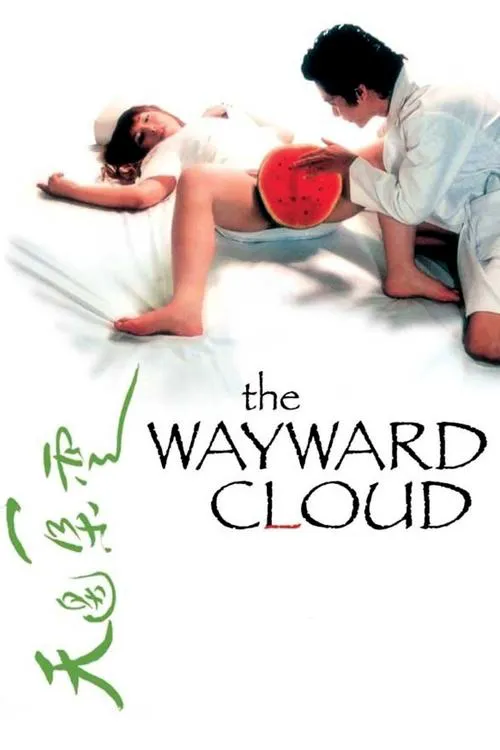The Wayward Cloud

Plot
In the visually stunning and surreal world of Tsai Ming-liang's "The Wayward Cloud," Hsiao-Kang, a struggling adult film star, navigates the complexities of his own desires and circumstances. This enigmatic and often elusive protagonist, once the focus of Tsai's "Rebels of the Neon God," is now an adult actor, a fact that underscores the themes of alienation and marginalization that pervade the film. Hsiao-Kang's encounters with Shiang-chyi, a woman he encounters in a toilet stall, serve as a catalyst for his emotional journey. Shiang-chyi, played by Shu-Shiue Liu, is a mysterious and captivating figure whose connection to Hsiao-Kang is never fully explained, leaving the audience to ponder the complexities of their relationship. Their interactions are fleeting, often devoid of context, and characterized by a deep sense of intimacy and longing. Meanwhile, the city of Taipei grapples with a severe water shortage, a crisis that becomes a metaphor for the emptiness and disconnection that pervades the lives of its citizens. The film's use of this narrative thread is a masterstroke, as it underscores the tension between the city's inhabitants and their surroundings. The water shortage serves as a potent reminder of the consequences of complacency and neglect, and it highlights the fragility of the modern world's infrastructure. As the water shortage worsens, the sales of watermelons skyrocket, an event that is both absurd and poignant. This bizarre phenomenon serves as a stark reminder of the city's reliance on artificial and consumable things to alleviate its problems. The watermelons become a metaphor for the city's insatiable hunger for satisfaction, a desire that can never be fully fulfilled. Through Hsiao-Kang's experiences, Tsai Ming-liang offers a powerful critique of modern society's obsession with consumption and desire. Hsiao-Kang's work as an adult film actor is a clear manifestation of this excess, a manifestation of the city's desire for pleasure and satisfaction. However, this obsession is ultimately unsatisfying, as it leaves him feeling empty and disconnected. One of the film's most striking aspects is its use of sound and silence. The soundtrack is often dominated by the sounds of silence, punctuated by moments of eerie quiet. This creates a sense of disquiet, as if the audience is privy to a private world that exists beneath the surface of the city's bustling streets. Tsai's direction is, as always, precise and deliberate, using long takes and static shots to create a sense of timelessness and stasis. The film's use of long takes allows the audience to become immersed in the world of Hsiao-Kang, to share in his emotions and experiences. The static shots, on the other hand, serve to underscore the city's stagnation and inertia. The performances in "The Wayward Cloud" are equally impressive, with Shu-Shiue Liu bringing a captivating presence to the enigmatic Shiang-chyi. Lee Kang-sheng, who reprises his role as Hsiao-Kang, brings a sense of vulnerability and desperation to his character. In the end, "The Wayward Cloud" is a film about disconnection and isolation, a meditation on the consequences of our actions and desires. It is a film that challenges the audience to reflect on their own place in the world, to consider the impact that our choices have on those around us. As the city of Taipei grapples with its water shortage, and as Hsiao-Kang navigates the complexities of his own desires, the film leaves the audience with a haunting question: what will we do with the fragments of our lives?
Reviews
Recommendations




